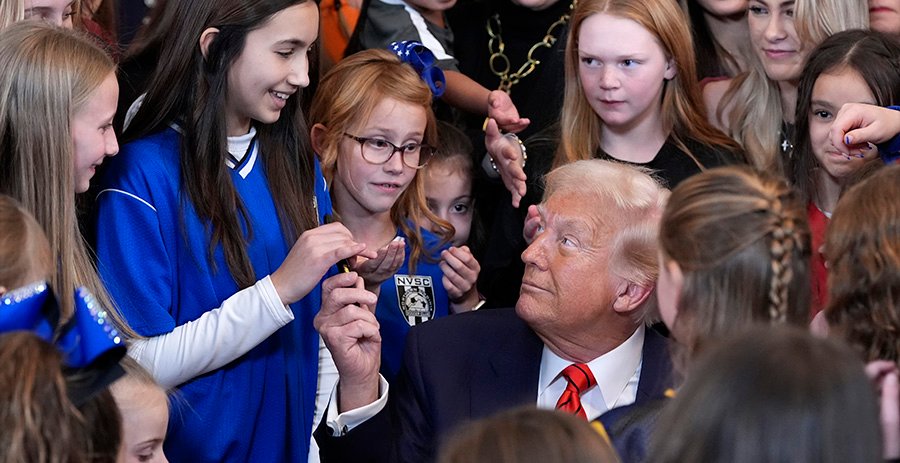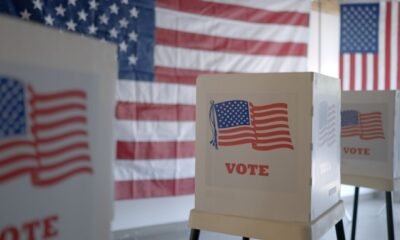Donald Trump
Trump’s Controversial Ban on Transgender Girls in Women’s Sports Sparks Legal Debate

On February 5, President Trump signed an executive order aimed at excluding transgender girls and women from participating in sports designated for females. This legislation could significantly affect the ongoing legal battles surrounding transgender athlete participation in Arizona, where a recent court ruling had allowed two transgender girls to compete alongside their peers.
In his announcement at the White House, Trump claimed that Title IX, a federal law intended to eliminate discrimination based on sex in education, was never meant to include individuals assigned male at birth. “We will not allow men to beat up, injure and cheat our women and our girls,” he stated, asserting that women’s sports must be reserved solely for women.
The president’s comments referenced specific incidents where he alleged that biological male athletes had taken opportunities away from female competitors. With this executive order, he declared, “the war on women’s sports is over.” Trump’s order empowers the federal government to investigate any educational institutions receiving taxpayer funds that allow male athletes to participate on female teams, with the threat of losing federal funding hanging in the balance.
This new order intersects with a recent ruling by U.S. District Judge Jennifer Zipps, who determined that an Arizona law preventing transgender girls from participating in girls’ sports violated Title IX. In her 2023 decision, she asserted that such exclusions harm transgender students and violate their rights. Her preliminary injunction allowed the two transgender girls involved in the lawsuit to compete while the broader legal issues are resolved.
Judge Zipps upheld the Arizona Interscholastic Association’s existing policy that allows transgender athletes to participate in sports corresponding to their gender identity, considering individual circumstances. However, the executive order could alter the landscape of this ongoing litigation.
Tom Horne, Arizona’s Superintendent of Public Instruction and defendant in the lawsuit, indicated that Trump’s action would bolster his case against the existing ruling. “We’ll use the argument about Title IX, as currently interpreted by the federal government in court,” he said, expressing confidence that the legal tide would turn in favor of the state.
The debate extends beyond Title IX. The Arizona law stipulates that sports teams must be designated as male, female, or coed, but controversially, it specifically excludes those designated for women from allowing participation by individuals assigned male at birth. Horne argued that this distinction is justified due to the perceived inherent physical advantages of biological males.
Rachel Berg, an attorney representing the two transgender girls, remains skeptical of the executive order’s legal standing. She warns that it could lead to invasive questioning and examinations of young athletes based on their gender identity. “This is harmful to all girls,” she remarked, indicating that the order does not account for individual circumstances.
Following his remarks at a rally last year in Arizona, Trump’s order was anticipated. He had previously indicated a commitment to maintaining a strict gender binary in sports, and later actions further emphasized this stance, including an order to clarify federal definitions of sex in official documents.


















